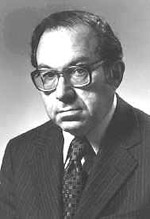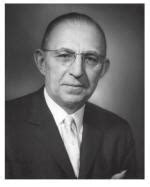A Quote by Benjamin Franklin
History will also give occasion to expatiate on the advantage of civil orders and constitutions; how men and their properties are protected by joining in societies and establishing government; their industry encouraged and rewarded, arts invented, and life made more comfortable; the advantages of liberty, mischiefs of licentiousness, benefits arising from good laws and a due execution of justice. Thus may the first principles of sound politics be fixed in the minds of youth.
Quote Topics
Advantage
Advantages
Also
Arising
Arts
Benefits
Civil
Comfortable
Due
Encouraged
Establishing
Execution
First
Fixed
Give
Good
Government
History
How
Industry
Invented
Joining
Joining In
Justice
Laws
Liberty
Life
Made
May
Men
Minds
More
Occasion
Orders
Politics
Principles
Properties
Protected
Rewarded
Societies
Sound
Thus
Will
Youth
Related Quotes
The moral principles and precepts contained in the Scriptures ought to form the basis of all our civil constitutions and laws . . . The religion which has introduced civil liberty is the religion of Christ and his Apostles . . . This is genuine Christianity and to this we owe our free constitutions of government.
The goodness or badness, justice or injustice, of laws varies of necessity with the constitution of states. This, however, is clear, that the laws must be adapted to the constitutions. But if so, true forms of government will of necessity have just laws, and perverted forms of government will have unjust laws.
As an engineer, I understood that the natural world operated according to fixed laws. Through my studies, I came to realize that there were, likewise, laws that govern human wellbeing. It seemed to me that these laws are fundamental not only to the wellbeing of societies, but also to the miniature societies of organizations. Indeed, that is what we found when we began to apply these principles systematically at Koch Industries. Through our observation of how they could create prosperity in an organization, I began to systematize my beliefs into Market-Based Management.
It has been frequently remarked, that it seems to have been reserved to the people of this country to decide, by their conduct and example, the important question, whether societies of men are really capable or not, of establishing good government from reflection and choice, or whether they are forever destined to depend, for their political constitutions, on accident and force.
As the Nazi regime developed over the years, the whole structure of decision-making was changed. At first there were laws. Then there were decrees implementing laws. Then a law was made saying, ‘There shall be no laws.’ Then there were orders and directives that were written down, but still published in ministerial gazettes. Then there was government by announcement; orders appeared in newspapers. Then there were the quiet orders, the orders that were not published, that were within the bureaucracy, that were oral. And finally, there were no orders at all. Everybody knew what he had to do.
A single assembly will never be a steady guardian of the laws, if Machiavel is right, when he says, Men are never good but through necessity: on the contrary, when good and evil are left to their choice, they will not fail to throw every thing into disorder and confusion. Hunger and poverty may make men industrious, but laws only can make them good; for, if men were so of themselves, there would be no occasion for laws; but, as the case is far otherwise, they are absolutely necessary.
Government means always coercion and compulsion and is by necessity the opposite of liberty. Government is a guarantor of liberty and is compatible with liberty only if its range is adequately restricted to the preservation of economic freedom. Where there is no market economy, the best-intentioned provisions of constitutions and laws remain a dead letter.
It is an object of vast magnitude that systems of education should be adopted and pursued which may not only diffuse a knowledge of the sciences but may implant in the minds of the American youth the principles of virtue and of liberty and inspire them with just and liberal ideas of government and with an inviolable attachment to their own country.
History is driven, over the long haul, by culture - by what men and women honor, cherish, and worship; by what societies deem to be true and good, and by the expressions they give to those convictions in language, literature, and the arts; by what individuals and societies are willing to stake their lives on.
We have come to world leadership because our people have had the opportunity to develop this nation under a government and a Constitution that gave them political freedom and encouraged initiative, enterprise, responsibility, industry and thrift. Freedom and achievement are not unrelated. This nation has become one of history's finest illustrations of how a people can enrich life and raise their whole level of economic well-being when they are given justice, liberty and incentive.
[Emigrants] will bring with them the principles of the governments they leave, imbibed in their early youth; or, if able to throw off, it will be in exchange for an unbounded licentiousness, passing, as is usual, from one extreme to another. It would be a miracle were they to stop precisely at the point of temperate liberty.































